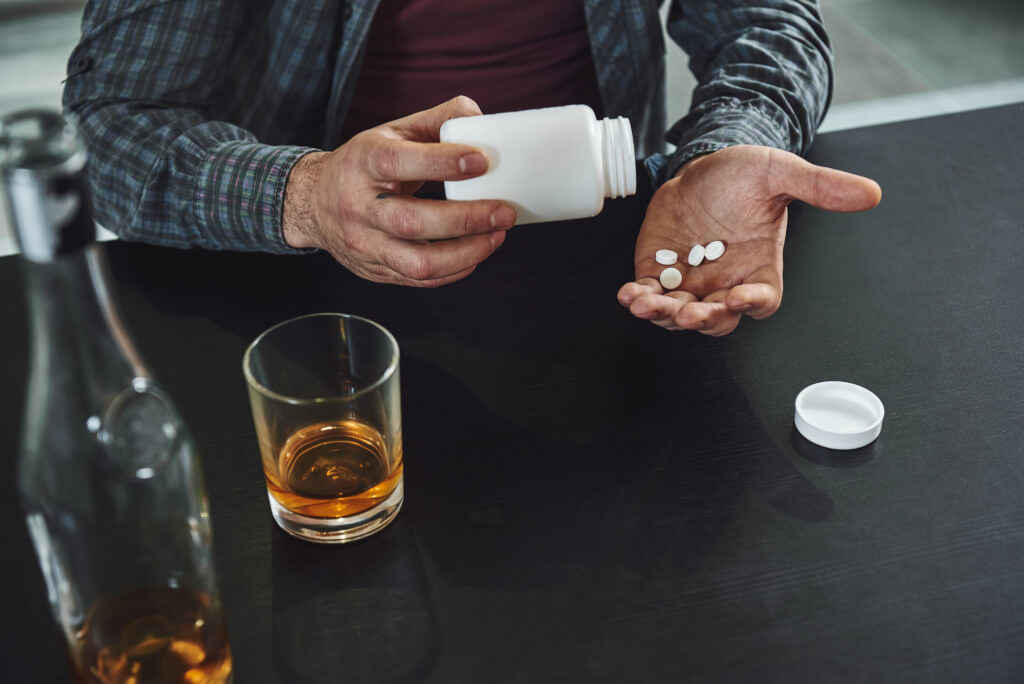Mixing drugs is extremely dangerous, and someone hooked on buprenorphine and alcohol may be unaware of how lethal this combination can be. In some cases, mixing the two substances may be unintentional; it can occur when a person taking prescription buprenorphine consumes alcohol before after taking their regularly scheduled dose of buprenorphine. However, in other cases, addicted people will intentionally take both buprenorphine and alcohol simultaneously to boost the effects of one or both substances.
What is Buprenorphine Used For?
Buprenorphine is one of the primary active ingredients in the brand-name drugs Subutex and Suboxone. It is frequently used to treat heroin addiction, pain, and other conditions. Unfortunately, the medication has side effects on its own: headaches, abdominal pain, tiredness, rashes, itching, tooth decay. But when combined with other substances, such as alcohol, the risk of these side effects increases. Additionally, buprenorphine is a long-lasting drug (it can stay in your body for a few days). It is critical to avoid alcohol until your body eliminates buprenorphine.
Side Effects of Mixing Buprenorphine and Alcohol
The adverse effects of combining buprenorphine and alcohol can be unpredictable, and vary from person to person. The effects range from unpleasant to fatal, and include symptoms such as coma, respiratory depression, and other issues that can arise when buprenorphine and alcohol are combined. Combining these two substances can also cause drowsiness and disorientation, increasing the likelihood of accidents, including car accidents and household mishaps. In addition, someone who is addicted to both buprenorphine and alcohol may be at a higher risk of overdose. Overdose symptoms include:
- Extreme weakness
- Failing
- Clammy skin
- Weak pulse
- Extremely dilated pupils
- Shallow breathing
- Slow heart rate
Some side effects and short-term problems associated with alcohol include:
- Slowed reaction times
- Trouble concentrating
- Blurred vision
- Stumbling or loss of balance
- Slurry speech
- Changes in cognition, judgment, and memory
- Blacking out, or incapacity to remember events during a drinking episode
- Extreme emotions and mood swings
- Slow breathing
- Fatigue or sleepiness
- Slow heart rate
- Low body temperature and even hypothermia
These side effects can ultimately cause a coma or death in some cases. So if you notice one or some of these symptoms in yourself or someone else after mixing buprenorphine and alcohol, you should go or take them to a hospital for immediate medical attention. Abusers of this mix are at higher risk of overdose and death.
Long-Term Health Issues from Alcohol and Buprenorphine Abuse
Alcohol and drug abuse that goes on for a long time lead to severe damage to the body, including:
- Cardiomyopathy (stretching and drooping of heart muscles)
- Stroke
- Arrhythmias (irregular heartbeat)
- High blood pressure
- Brain damage (as well as mental health ailments and Wernicke-Korsakoff syndrome)
- Pancreatitis (or inflammation of the pancreas), which harms digestion
- Liver damage and failure
- Cancers of the throat, mouth, stomach, liver, esophagus, bowel, and breast
Because of the deadly combination of these two substances, you must understand how to use the medication correctly.

Signs You Need Help
If you frequently drink and mix buprenorphine with alcohol, you may require assistance. If you’re unsure whether or not you have a problem, answering honestly to the following questions from the Drug Abuse Screening Test (DAST-10) will help you figure it out:
- Have you ever used drugs that a doctor did not prescribe to you?
- Do you use multiple medications at the same time?
- Can you stop using drugs whenever you want to?
- Have you ever experienced blackouts as a result of your drug use?
- Do you feel bad about using drugs?
- Do your loved ones object to your medication use?
- Have you been neglecting your loved ones as a result of your drug use?
- Do you engage in any illegal activities to obtain your drug?
- Have you experienced withdrawal symptoms after discontinuing your medication?
- Have you had any medical issues as a result of your drug use?
You might require professional assistance if you answered ‘YES’ to one or more of these questions. Detox staff can assist you with your assessment. Alternatively, you can always consult with your doctor.
Buprenorphine and Alcohol Treatment Options
Treatment for buprenorphine and alcohol addiction is available, and in most cases, the therapy helps a person discontinue the use of the drug. Other treatments may focus on lowering the risk of harm while still taking the medication. In addition, some treatment facilities, such as MD Home Detox, have specialty programs for alcoholism, buprenorphine addiction, and other substance abuse issues. So, if you or someone you know is addicted to buprenorphine and alcohol, seek treatment as soon as possible. Because buprenorphine only treats physical addiction and not psychological dependency, an addicted individual may require other therapies.
At-Home Rehab With MD Home Detox
Are you concerned about the use of buprenorphine and alcohol at the same time? At MD Home Detox we provide you or your loved one with professional substance detox help at home, as well as mental health stabilization and aftercare services. If you are concerned about the effects of combining alcohol or drugs, or want to find out what your treatment options are, contact us today.

